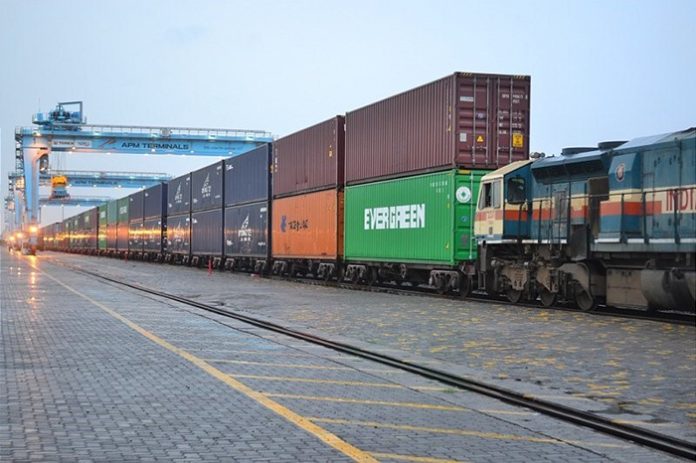Snapshot
Indian Railways transported a record 1418 MT cargo in the financial year 2021-22.
Now, Railways has formulated an action plan for achieving 3,000 MT freight loading by 2027.
With the aim of achieving an ambitious target of 3,000 million tons loading by 2027, Indian Railways has formulated an action plan for making requisite policy and strategic interventions prioritising capacity enhancement works to induce the desired result in a time bound manner.
According to the Railways, a committee was constituted to draw up a comprehensive action plan for creation of adequate carrying capacity over next five years and has also devised strategy/policy initiates for inducing modal shift to Rail, for achieving 3000 MT freight loading by 2027.
The multi-pronged strategy devised by the panel envisages time bound implementation through close monitoring of sanctioning of works and execution by several organs of the Railways.
Accordingly, a three-fold strategy has been formulated to address infrastructural constraints, rolling stock constraints and marketing, pricing, customer service and policy related issues.
The strategy involves the crucial network expansion/augmentation and upgradation works to improve the carrying capacity and upgradation of rolling stock fleet of locos and wagons.
According to the Railways, strategic and customer-centric initiatives would be undertaken to attract incremental traffic from road for inducing modal shift to rail.
Door-to-door service: The customer logistics requirement can be met fully by providing complete integrated service. Door-To-Door Service is an area which Railway needs to focus upon for widening the customer base by providing end to end integrated services.
Action plans for improving containerisation to 20 per cent by addressing operational and pricing/policies issues and by liberalising restrictive policies are to be devised to meet Mission 3000 MT.
Initiatives would be taken for attracting automobile traffic as the rail share of automobile traffic in India is very low (3.45 per cent) due to many reasons concerning rolling stocks as well as pricing issues.
For achieving Mission-3000 MT, an ambitious growth is needed over next five years for which the Railways needs to effectively address and overcome the major challenges of supply side and demand side constraints highlighted in para 4 above, in a time bound manner, said a senior Railway official.
Supply side constraints: To ease these constraints, there is immediate need to commission the identified crucial capacity enhancement works – augmentation and upgradation of network and rolling stock fleet to enable Indian Railways to create adequate capacity to carry 3000MT cargo with desirable efficiency, speed, cost and reliability to the satisfaction of customer.
Demand side constraints: With improved capacity, some additional cargo from presently unmet demand (400-500 MT) will automatically switch to Rail. However, garnering 3000MT by FY27 cargo necessitates proactive interventions for attracting incremental traffic and inducing modal shift through marketing strategy, dynamic pricing, assured transit time, higher efficiencies, diversification of commodity basket, enhanced containerisation, enabling piecemeal loading, door to door service through intermodal integration and customer centric service delivery.
Indian Railways, the fourth largest Railway network in the world, transported a record 1418 MT cargo in the financial year 2021-22. The Railways plays a stellar role in meeting the logistics needs of the country and is rightly called the lifeline of the nation.


